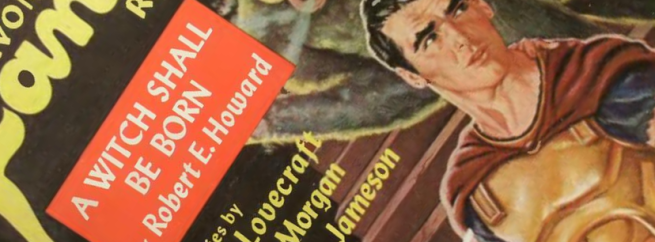
“Fantasy heartbreaker” is a fairly well-known term in the tabletop gaming community. Simply put, it refers to a tabletop RPG where the creator has apparently looked at Dungeons & Dragons (which continues to be the kind of monolith in the tabletop RPG universe that World of Warcraft is to MMORPGs) and thought, “You know what? I can do that, but better.”
This is, without a doubt, a noble goal. We’ve all used other material as a jumping-off point. I even seem to recall dimly, from a literary criticism class I took the better part of a decade ago, that there’s a term for it: “creative misunderstanding.”
The problem with a fantasy heartbreaker is that the result is invariably a game that is almost exactly like D&D—it plays like D&D, perhaps shares a lot of the same rules as D&D, and most likely has similar settings to D&D. “Big deal,” you’re probably thinking. “So it’s a D&D knockoff.”
Here’s the thing: a fantasy heartbreaker is defined by having, somewhere in its swamp of poorly-considered rules and half-baked fiction, a single, glimmering gem of brilliance. Something that is verifiably new and interesting. But to get to that bit of genuine ingenuity is akin to slogging through a pitch-black cave hip-deep in guano, the air thick with pissed-off bats, to try to dig a ruby out of a nest woven from razor wire.
That is why it’s a heartbreaker.
“But James,” you’re saying, exasperated, “this post is filed under writing, but you’ve been talking about bloody RPGs for 250 words!”
The thing you need to keep in mind is that the fantasy heartbreaker is not a phenomenon unique to RPGs. It happens all the time in writing as well, and not just in fantasy. It happens across all kinds of fiction and nonfiction. It’s perilous as hell.
Take, for instance, Voidhawk. I only got a few hours into the audiobook before I had to shut it off in disgust and trade it back to Audible for something that wouldn’t infuriate me, but it serves as an excellent example. I won’t link it, though, because I don’t want to do it that favor. If you wanna find it, you’ll have to locate it yourself.
The basic premise is that it’s fantasy, but it’s fantasy IIIIN SPAAAAAACE. Which sounded amazing. I’m always down to clown when it comes to genre mash-ups. All you gotta do is check out my bookshelves, my DVDs, and my own writing to see that. Sci-fi westerns? Lovecraft and giant robots? Space fantasy? Superheroes and espionage? Spec-fic tea mysteries? Hell yes. So I thought this would be 100% my cuppa tea.
I could not have been more wrong.
I’ll start with the glimmer of brilliance. The guy who wrote this book put some thought into the mechanisms of how celestial bodies in a fantasy world would work. All sufficiently large masses had Earth-standard gravity and atmospheres, automagically. It was just How Things Were. I could suspend my disbelief for that. Voidships to traverse the vacuum between those masses were basically overhauled wooden maritime vessels fitted with special helms—a play on words I appreciated, as said helm was both the control for the ship and a piece of headgear the pilot wore. Standard weaponry for the characters included flintlock pistols and rapiers. It was all very Napoleonic, which is not something I’ve seen woven into fantasy before. The author was clearly very excited about that stuff, and their labors showed it.
But those fun bits I just described, where the author took effort and time to include and justify Cool Stuff? Every scrap of that was undone by characters and plotlines lifted from the worst thud-and-blunder schlock of the past half-century. The Roguish Hero, the Gruff Mentor, the Tough Girl Love Interest, a whole slew of Buxom Wenches, flocks of Generic Adventuring Taverns, parades of cookie-cutter dwarves, elves, and trolls, paleolithic sexism that belongs in the grim darkness of the twentieth century, and absolutely no explanation for any of it. None at all.
Why were there dwarves? Because you have to have dwarves. Why were the dwarves gruff? Because that’s how dwarves are. Things existed simply because that is how it has always been done.
Now this isn’t to say that I have anything against the Roguish Hero, or the Gruff Mentor, and I even enjoy the occasional Buxom Wench. But when your characters exist only to fulfill an adjective and a noun—when your Roguish Hero exists only to rogue and to hero, and your Buxom Wench exists only to buxom and to wench, then you have a profound problem.
So, I figure there is a the lesson to be taken from fantasy heartbreakers and Voidhawk, and that lesson goes thusly:
If you have a beautiful, scintillating idea you’re going to toss into something you’re working on, make sure the idea’s surroundings live up to it. Because there’s nothing worse than the sharp contrast between innovation and bullshit.

I’m really glad you wrote about this. I remember when you were listening to it that you have a thesis-length dissertation made entirely out of rage to critique this book.
Also, using table top gaming phraseology as literary criticism is *the Jamesest thing.* But it also fits here, so nicely done, sir.
LikeLike
Why thank you! It seemed like an appropriate comparison to make, and heaven knows that there are TONS of wholly-forgettable, almost-neat books and stories out there. May as well drag em into the light of day and see what we can learn as they crisp in the unforgiving rays of the sun.
LikeLike